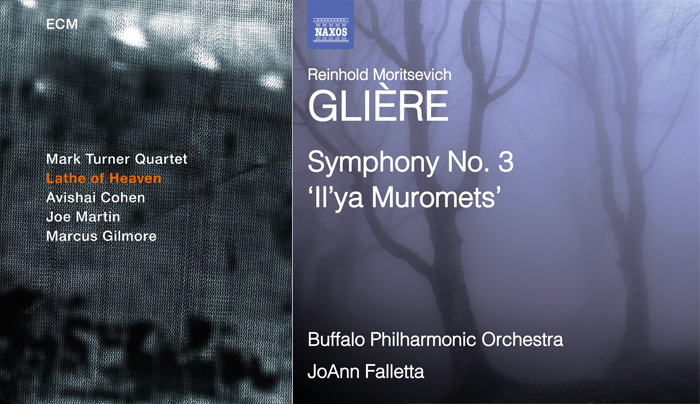In the penultimate installment of our annual roundup of the year’s best music, we finally get around to the classical and jazz categories. You know—the serious stuff. (Check out parts 1–4 here, here, here, and…here.) Next week we’ll reveal the artist of the year. Stay tuned…
Best jazz album of 2014: Mark Turner Quartet, Lathe of Heaven Turner’s jazz isn’t the tap-your-foot, hoot-and-holler type. It’s far more cerebral; a soft-spoken, patient, carefully considered jazz that speaks to the soul in whispers. With no chordal instrument—the quartet comprises tenor sax (Turner), trumpet (Avishai Cohen), bass (Joe Martin), and drums (Marcus Gilmore)—the two horns are completely exposed, which in less capable hands might mean a more tentative approach to improvisation. Not so with these guys, however. They seem to know exactly what to say and how to say it. And more important, when to let the space between the notes do the talking for them. (Honorable mention: Dave Douglas & Uri Caine, Present Joys.)
Best classical album of 2014: Reinhold Moritsevich Glière, Symphony No. 3 in B minor, op. 42 (Naxos: JoAnn Falletta conducting the Buffalo Philharmonic Orchestra) This was by far the toughest decision for me. With Vasily Petrenko concluding his survey of Shostakovich’s symphonies, the release of Harrison Birtwistle’s Chamber Music, and a glorious recording of Herbert Howells’s Stabat Mater—not to mention the Pulitzer Prize-winning Become Ocean by John Luther Adams—2014 was a great year for contemporary classical music. Why did I ultimately decide on Glière? In part because it’s a beautifully engineered recording of a monumental work that, sadly, is virtually unknown. But also because Become Ocean is on everyone else’s list.


